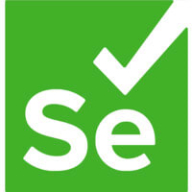

Selenium HQ and Galen Framework are tools used for web testing with each excelling in different areas. Selenium HQ appears to have an advantage in automation capabilities, while Galen Framework is stronger in UI-focused evaluations.
Features: Selenium HQ offers robust browser automation, support for multiple programming languages, and comprehensive documentation backed by a large community. Galen Framework provides unique layout validation across different browser resolutions, a strong focus on frontend design testing, and effective UI evaluation.
Ease of Deployment and Customer Service:Selenium HQ has a straightforward deployment process with extensive community support and resources. Galen Framework offers an easy setup specifically for frontend testing and detailed documentation for layout validations. Both have solid deployment models, with Selenium HQ enjoying an edge due to broader community support.
Pricing and ROI: Selenium HQ is open-source, leading to no initial setup costs and a competitive edge in ROI for versatile small to mid-sized projects. Galen Framework remains cost-effective due to its focus on niche testing areas, maximizing ROI for frontend design validation, with Selenium HQ offering broader cost-effective testing applications.
| Product | Market Share (%) |
|---|---|
| Selenium HQ | 3.6% |
| Galen Framework | 0.3% |
| Other | 96.1% |

| Company Size | Count |
|---|---|
| Small Business | 41 |
| Midsize Enterprise | 33 |
| Large Enterprise | 51 |
Layout testing seemed always a complex task. Galen Framework offers a simple solution: test location of objects relatively to each other on page. Using a special syntax and comprehensive rules you can describe any layout you can imagine.
Galen Framework runs well in Selenium Grid. You can set up your tests to run in a cloud like Sauce Labs or BrowserStack so that you can even test your responsive websites on different mobile devices. Galen can run multiple tests in parallel which is also a nice time saver.
Galen Framework is designed with responsivness in mind. It is easy to set up a test for different browser sizes. Galen just opens a browser, resizes it to a defined size and then tests the page according to specifications.
Selenium HQ is an umbrella project that includes a number of tools and frameworks that allow for web browser automation. In particular, Selenium offers a framework for the W3C WebDriver specification, a platform- and language-neutral coding interface that works with all of the main web browsers.
Selenium is a toolset for automating web browsers that uses the best methods available to remotely control browser instances and simulate a user's interaction with the browser. It enables users to mimic typical end-user actions, such as typing text into forms, choosing options from drop-down menus, checking boxes, and clicking links in documents. Additionally, it offers a wide range of other controls, including mouse movement, arbitrary JavaScript execution, and much more.
Although Selenium HQ is generally used for front-end website testing, it is also a browser user agent library. The interfaces are universal in their use, which enables composition with other libraries to serve your purpose.
The source code for Selenium is accessible under the Apache 2.0 license. The project is made possible by volunteers who have kindly committed hundreds of hours to the development and maintenance of the code.
Selenium HQ Tools
These three main Selenium HQ tools have powerful capabilities:
Reviews from Real Users
Selenium HQ stands out among its competitors for a number of reasons. Two major ones are its driver interface and its speed. PeerSpot users take note of the advantages of these features in their reviews:
Avijit B., an automation tester at a tech services company, writes of the solution, “The driver interface is really useful. When we implement the Selenium driver interface, we can easily navigate through all of the pages and sections of an app, including performing things like clicking, putting through SendKeys, scrolling down, tagging, and all the other actions we need to test for in an application.”
Another PeerSpot reviewer, a software engineer at a financial services firm, notes, “Selenium is the fastest tool compared to other competitors. It can run on any language, like Java, Python, C++, and .NET. So we can test any application on Selenium, whether it's mobile or desktop."
We monitor all Functional Testing Tools reviews to prevent fraudulent reviews and keep review quality high. We do not post reviews by company employees or direct competitors. We validate each review for authenticity via cross-reference with LinkedIn, and personal follow-up with the reviewer when necessary.